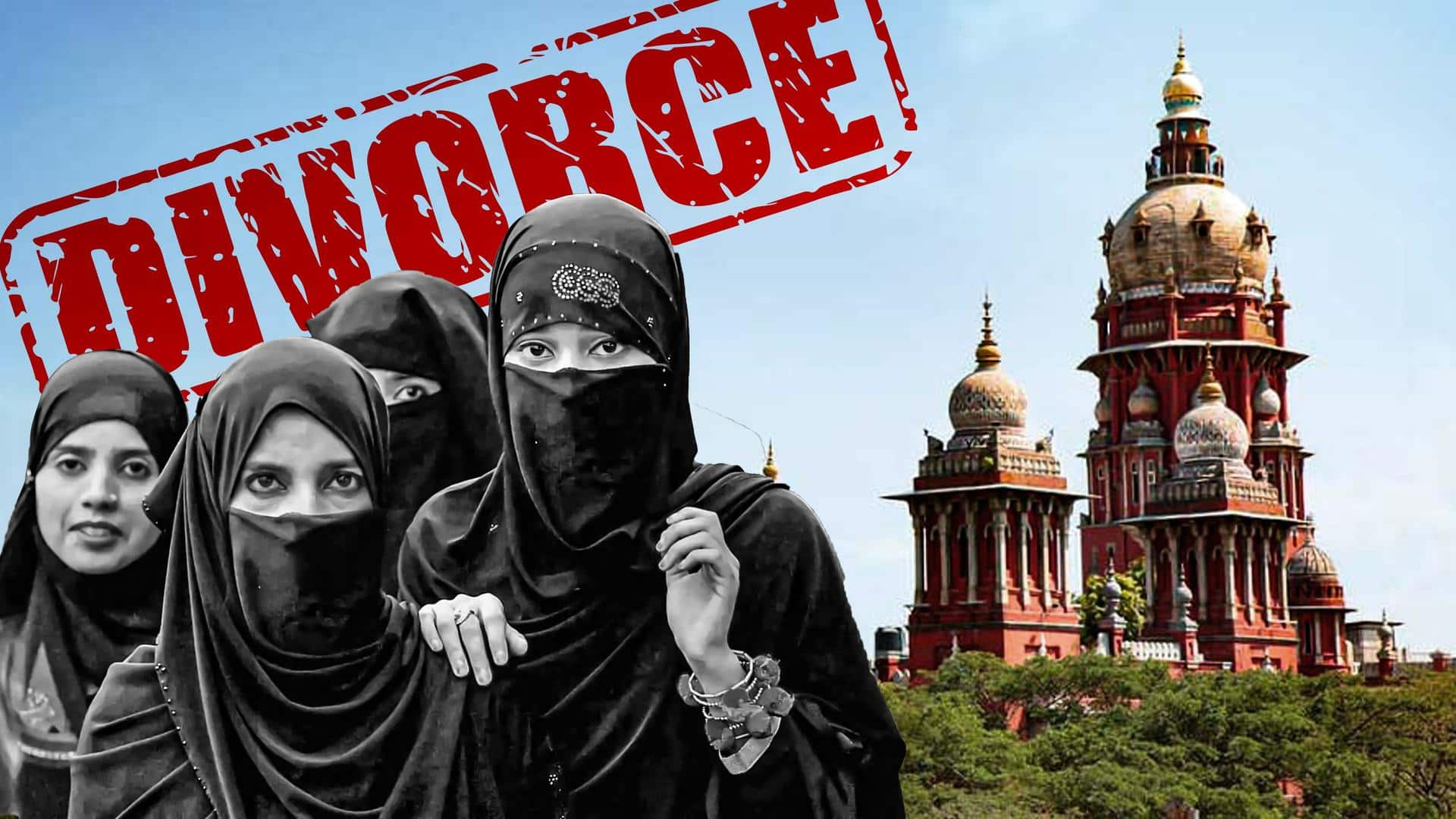
Muslim women must approach family court for divorce: Madras HC
What's the story
A Muslim woman is eligible to practice her right to dissolve a marriage through "Khula" (the process of divorce initiated by the wife) by only approaching a family court and not any private bodies like a Shariat council, said the Madras High Court. The court also added that private bodies could not certify or pronounce the dissolution of marriage.
Context
Why does this story matter?
Since India announced the practice of triple talaq as unconstitutional, the topic of divorce among the country's Muslim population has been widely debated! Under Family Courts Act's Section 7(1) (b), the Muslim Personal Law (Shariat), and the Dissolution of Muslim Marriages Act, only family courts have the legal authority to dissolve marriages in the country.
Quote
Here's Justice C Saravanan's verdict on the matter
While dismissing a Khula certificate published by a Shariat council in 2017, the Times of India reported Justice C Saravanan as saying: "While it is open for a Muslim woman to exercise her inalienable rights to dissolve the marriage by 'Khula,' as recognized under the Muslim Personal Law (Shariat) Application Act, it can be done only by approaching a family court."
Details
Approach family court for lawful dissolution of marriage: Madras HC
The judge also asked the petitioner's wife to approach a family court or the Tamil Nadu Legal Services Authority for a lawful dissolution of her current marriage by the process of Khula. A certificate of dissolution of marriage, even under traditional regulation, can't be issued lawfully by "a self-declared body consisting of a few members of Jamath," said Saravanan.
why-does-it-matter
Know about the petition by the husband
The husband, in his petition, claimed that "extra-judicial decrees such as a Khula certificate or a fatwa had no legal sanction and can't be enforced by any private or individual entity." Against this appeal, the local Shariat council said that the high court of Kerala had upheld this practice after hearing a similar case, and the husband's petition was thus not maintainable.
Know more
Shariat council can't certify dissolution of marriage by Khula: HC
Furthermore, the court rejected the contention and claimed that the judgment by the Kerala High Court "upheld only the Muslim woman's right to unilateral divorce through Khula." However, it didn't back the private bodies like the Shariat council's involvement. "Private bodies such as the Shariat council cannot pronounce or certify dissolution of marriage by Khula," ruled the judge.